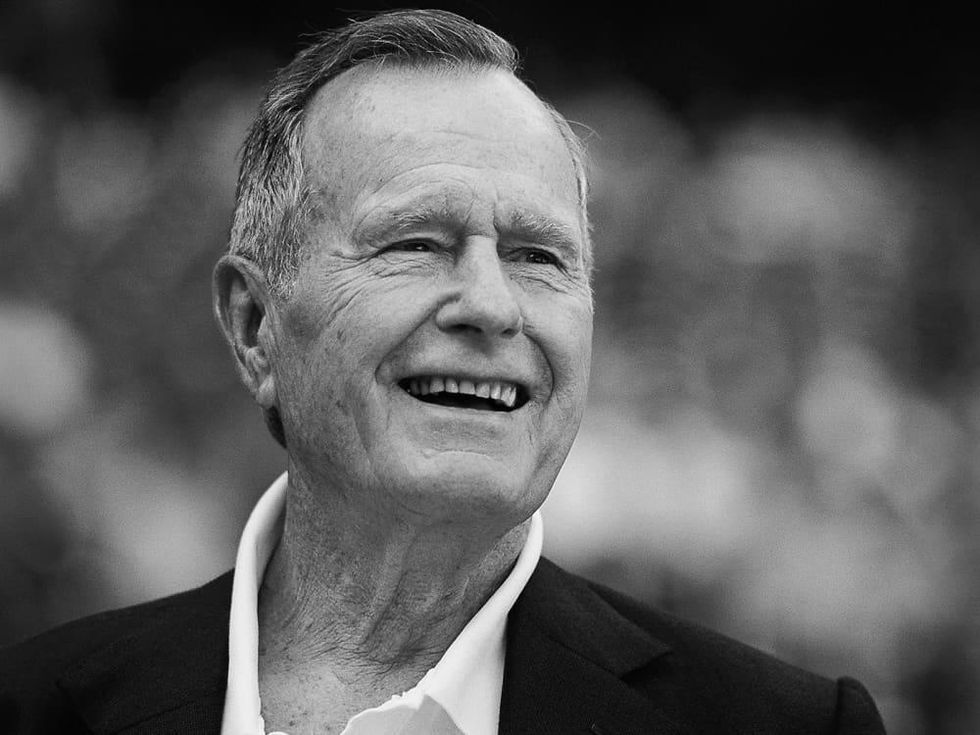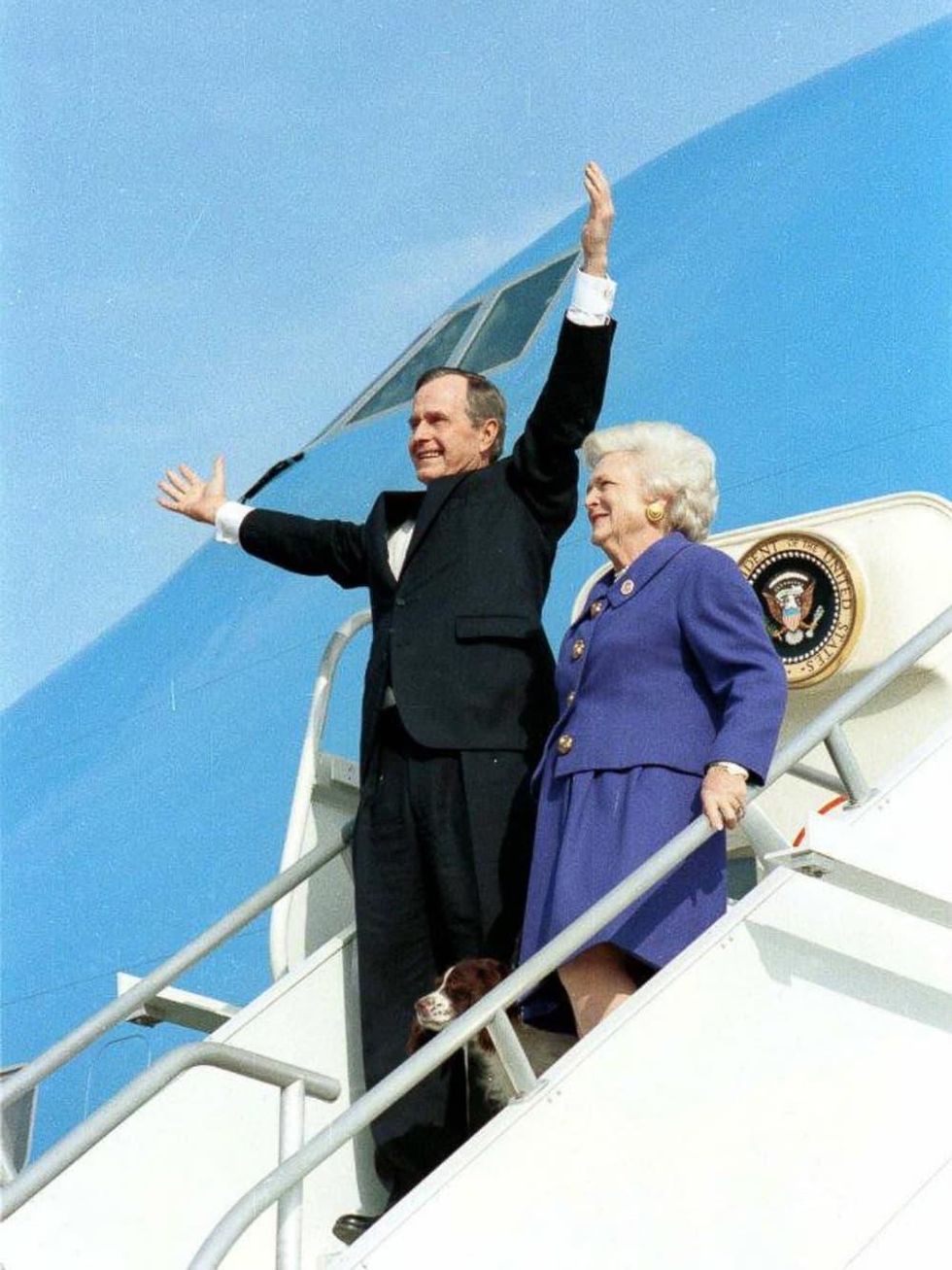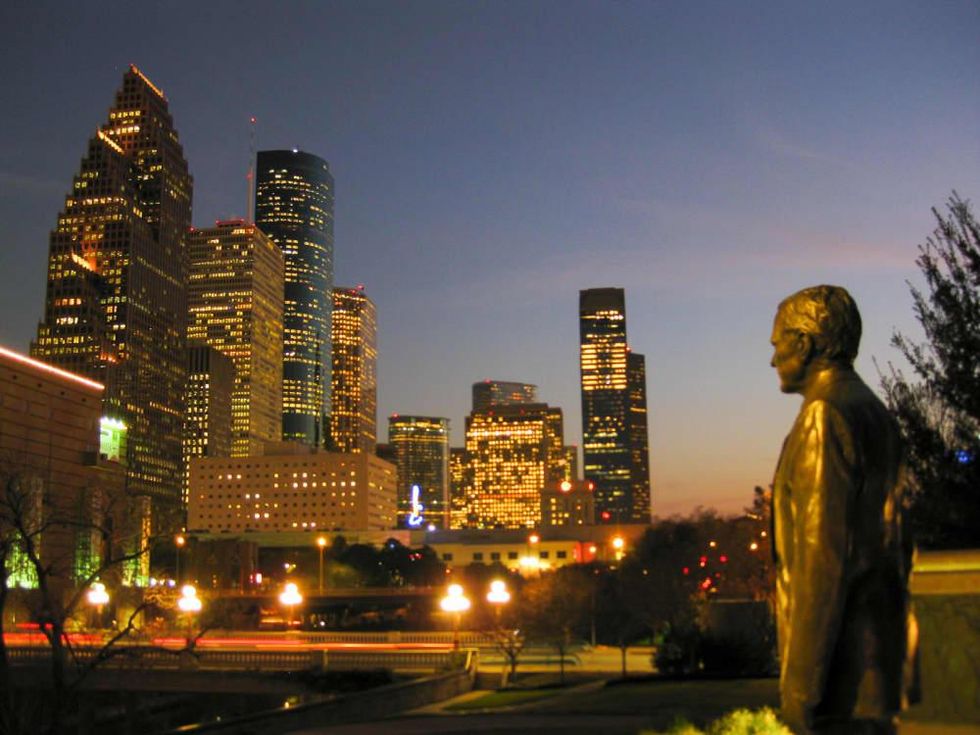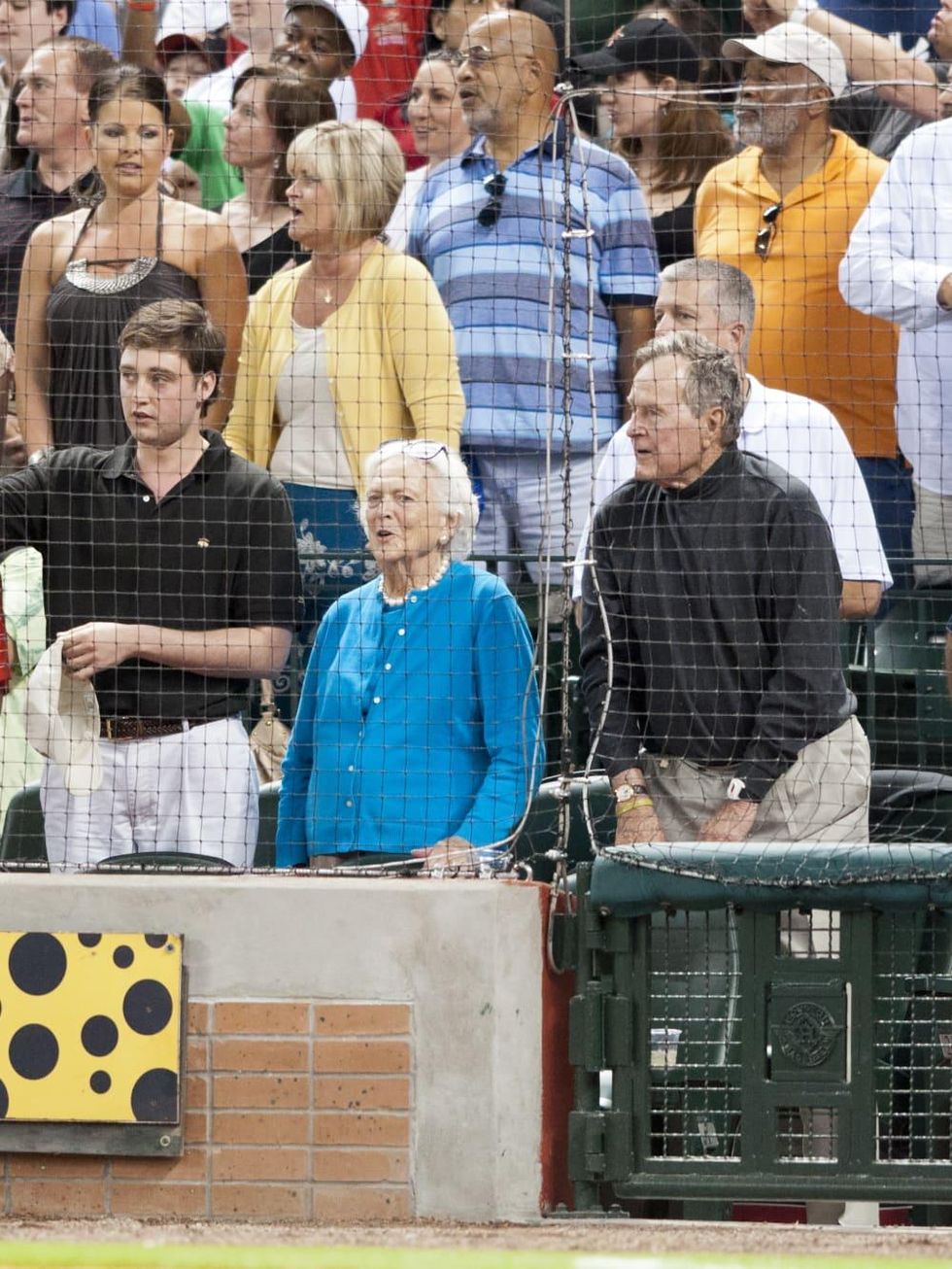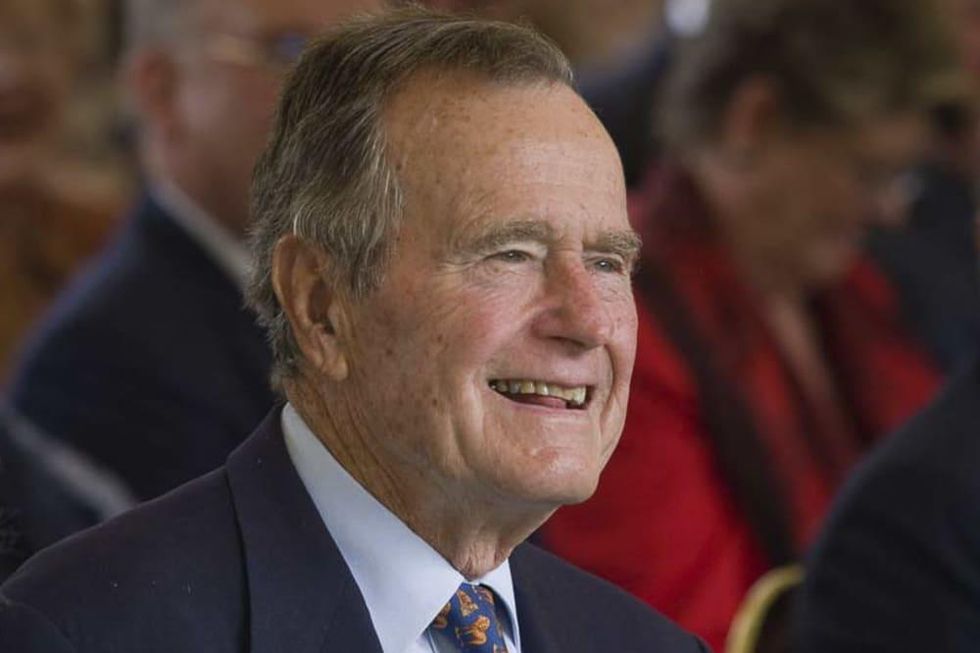RIP President Bush
A wonderful life: Dedicated public servant George H.W. Bush was a president and a gentleman
George H.W. Bush, who promised a "kinder, gentler nation" when he served as the nation's 41st president from 1989-1993 and worked tirelessly to realize such sentiments, died Friday, November 30, 2018. He was 94.
Bush, who was born in Massachusetts but called Houston home, was a fixture on the city's philanthropic scene after returning to Texas after he was defeated by then-Arkansas Gov. Bill Clinton in the 1992 presidential election.
He and his wife, Barbara, raised millions for cancer research and other causes in Houston. As former presidents, he and Clinton joined forces to support relief efforts for victims of Hurricane Katrina in 2005 and the Indian Ocean tsunami in 2004. He united with presidents Clinton; Obama; Carter; and his son, George W. Bush, to raise money for Hurricane Harvey relief.
Bush dedicated his life to public service. He enlisted in the armed forces when he turned 18 in 1942 and was the youngest pilot in the Navy. He flew 58 combat missions during World War II and was awarded the Distinguished Flying Cross for bravery in action after his plane was shot down by Japanese antiaircraft during a mission in the Pacific. He was rescued by a U.S. submarine crew.
In January 1945 he married Barbara Pierce. They had six children: George W. Bush, who, in 2000, was elected president; Robin (who died as a child); John (known as Jeb, who served as Florida governor); Neil; Marvin; and Dorothy. He is survived by those children and their spouses, 17 grandchildren, eight great-grandchildren, and two siblings. Funeral arrangements are pending.
Making Texas home
After graduating from Yale University — where he was captain of the baseball team and a member of Phi Beta Kappa — in 1948 with a bachelor of arts degree in economics, Bush moved to West Texas and set out to make his fortune. He co-founded the Zapata Petroleum Corporation in Midland and later settled in Houston, where he entered politics. (His father, Prescott Bush, was a U.S. senator from Connecticut in 1952.)
During a time when there were few Republicans in the state, George H.W. Bush served as chairman of the Harris County Republican Party in 1964 and gradually built the state GOP into a political juggernaut.
He served two terms as a U.S. Representative, representing west Houston, and twice ran unsuccessfully for U.S. senator from Texas before gaining attention in a series of high-profile appointed positions: ambassador to the United Nations, chairman of the Republican National Committee, chief of the U.S. Liaison Office in the People's Republic of China, and director of the Central Intelligence Agency.
Victory in Iraq
In 1980, Bush ran for the Republican nomination for president in a contentious primary campaign. He lost to Ronald Reagan, who later selected him as his running mate and served two terms as vice president. Bush was elected president in 1988. During his inaugural address, he pledged, in what he called "a moment rich with promise," to use American strength as "a force for good."
Bush's greatest test came in 1990, when Iraqi President Saddam Hussein invaded Kuwait and threatened to move into Saudi Arabia. Vowing to free Kuwait, Bush rallied the United Nations and the nation. He sent 425,000 American troops to the Middle East, where they were joined by 118,000 troops from allied nations. After weeks of air and missile bombardment, the forces routed Iraq's army in a 100-hour land battle dubbed "Desert Storm."
Among Bush's other lasting accomplishments: He signed the Americans with Disabilities Act of 1990 and the Immigration Act of 1990, which increased legal immigration to the United States by 40 percent; reauthorized the Clean Air Act; and worked to increase federal spending for education, childcare, and advanced technology research.
He also appointed Clarence Thomas and David Souter to the U.S. Supreme Court.
Election defeat
Despite unprecedented popularity from the triumph in Iraq, Bush suffered from a faltering economy and continued high deficit spending. Although he had famously declared, "Read my lips, no new taxes" when he was nominated at the Republican National Convention in New Orleans in 1988, he compromised with Democrats to produce a bill that increased the marginal tax rate and phased out exemptions for high-income taxpayers.
His popularity plunged, and in 1992, he lost his bid for reelection. He returned to Houston, where he became a beloved figure, appearing at Houston Astros and Texans games; at favorite restaurants like Armandos and Gigi's Asian Bistro & Dumpling Bar; and in high-profile fundraising campaigns for a host of charitable organizations, including Texas Children's Hospital and the University of Texas M.D. Anderson Cancer Center.
Among the local tributes: Houston's Intercontinental Airport was renamed for Bush, and a statue of the former president overlooks downtown Houston.
Bush split his time between Houston, where he and Barbara lived in the Post Oak area, and College Station at the George Bush Library and Museum at Texas A&M University, where he will be buried. He supported his son, George W. Bush, in a successful bid for the presidency in 2000 but, as a former president, he did not take an active role in the campaign.
President Barack Obama awarded George H.W. Bush the 2010 Presidential Medal of Freedom, the nation's highest civilian honor, for his commitment to service and ability to inspire volunteerism throughout the country, encouraging citizens to be "a thousand points of light."
---
Clifford Pugh and Eric Sandler contributed to this story. Information for this obituary was gathered from the White House, Wikipedia, and other biographical websites.
